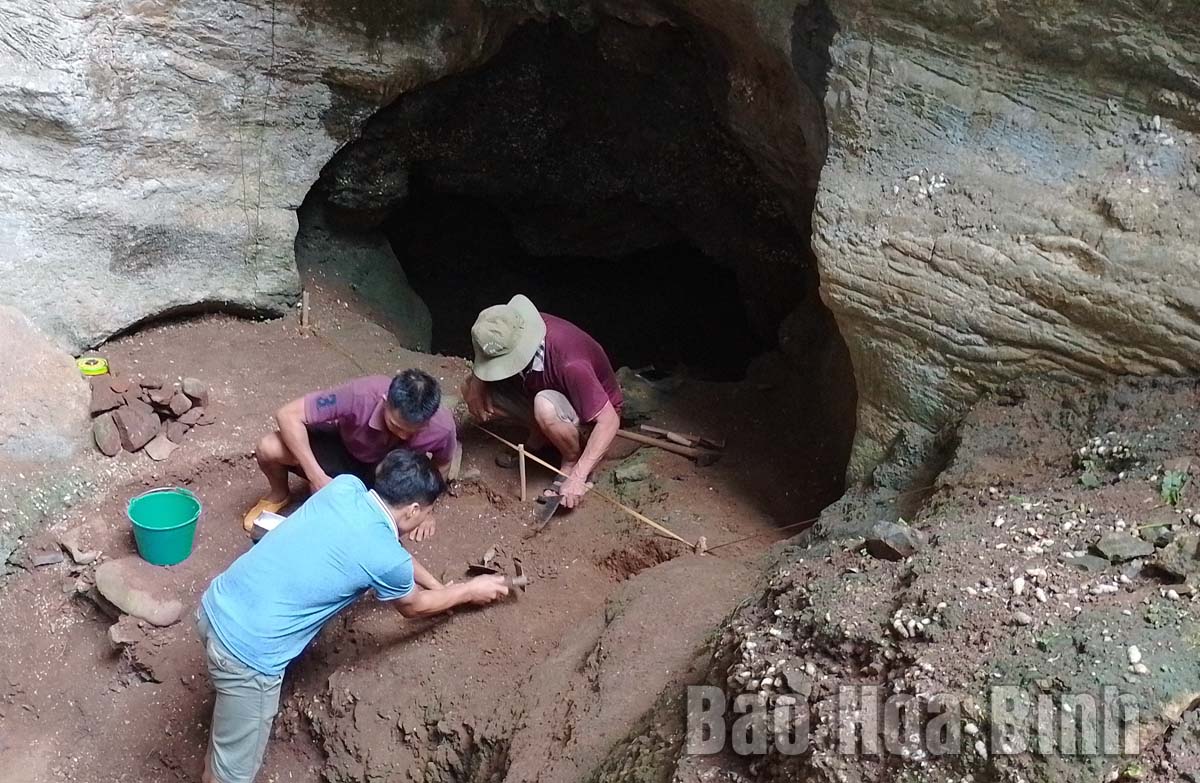(HBO) – In 1991, Ha Son Binh province was divided into Hoa Binh and Ha Tay provinces. At that time, Hoa Binh took charge of more than 3,000 museum objects and one dossier of an archaeological relic site, but this relic site did not belong to the Hoa Binh Civilisation.
Hoa Binh province museum
coordinates with Centre for Southeast Asian Prehistoric Studies to excavate Xom
Trai (Trai hamlet) Cave in Tan Lap commune (Lac Son district) in 2022.
Studies of the Hoa Binh Civilisation were modest
in the 1990s.
In 1997, a special event of Vietnam’s
archaeology happened in the province when a resident in the then Cao Ram
commune, now Cao Son commune of Luong Son district, accidentally discovered a
fossil orangutan skull. After that, the provincial museum worked with the
Vietnam Institute of Archaeology to search for other remains, finding
relatively complete skeletons of an orangutan and her infant.
This discovery held a special value that changed
international scientists’ awareness of the existence and extinction of the
primate in the mainland Southeast Asia. The event attracted great attention
from global scientists and also opened up a good opportunity for archaeologists
in Vietnam and the province to study the Hoa Binh Civilisation, which still had
many questions awaiting answers.
After the two orangutan skeletons were found,
Vietnamese archaeologists held many scientific workshops and conferences at the
national, regional, and international levels. Many recommended larger
excavations be carried out in the vicinity of the place where the remains were
unearthed.
In 1998, the museum in coordination with the
Archaeology Institute and experts from Japan, the Republic of Korea, and
Australia conducted two explorations in former Cam Ram commune. Working on Cho
Cave, they collected thousands of stone items dating to the Hoa Binh
Civilisation and the periods before and after this era.
In the following years, experts from the
Archaeology Institute visited the province for several times mainly to collect
objects, not to conduct large-scale excavations. Since 2005, almost no archaeologists
have come to Hoa Binh.
In the early 21st century, the study of the Hoa
Binh Civilisation was carried out mainly through coordination with partners
because the work is highly complicated and requires trained and experienced
researchers with in-depth knowledge.
To prepare for the 90th anniversary of French
archaeologist M.Colani’s discovery of the Hoa Binh Civilisation, the provincial
museum has once against coordinated with the Centre for Southeast Asian
Prehistoric Studies to carry out researches. Within the framework of their
cooperation programme, the two sides have explored many places in Lac Son
district while excavating the Trai Hamlet Cave and the Vanh Village stone
shelter. Research results have yet to be revealed, but new and important
findings are expected to give an insight into the life of prehistoric humans
who lived up to 10,000 years ago.
Since the reestablishment of Hoa Binh province,
local specialised agencies have strived to study this special civilisation. As
the research is a difficult task requiring both high-quality personnel and
large investment, it is necessary to have a comprehensive strategy for
promoting the study of the Hoa Binh Civilisation.



